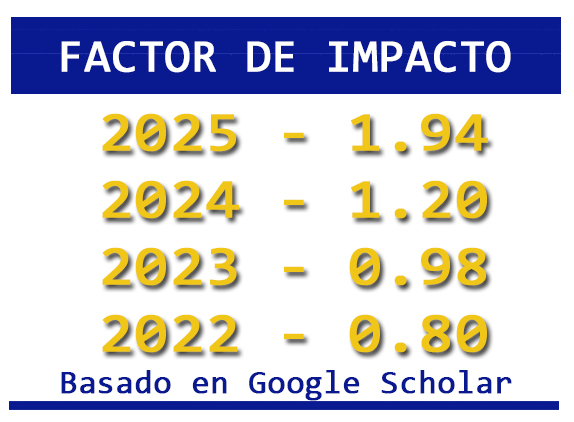Reprogramming of alternative splicing of genes associated with breast cancer
DOI:
https://doi.org/10.36790/epistemus.v15i30.186Keywords:
splicing, breast cancer, antisense oligonucleotidesAbstract
Alternative splicing is a process that modulates gene expression and contributes to protein diversity. However, alterations have been observed that harm alternative splicing and promote the development of oncogenic isoforms in breast cancer. Breast cancer is the most common neoplasm in women and the leading cause of death from cancer. This paper analyzes the expression of isoforms involved in tumor progression and the use of antisense oligonucleotides as a treatment for breast cancer. The information reveals that the deregulation of the BirC5 and KLF6 genes is involved in tumor progression and invasion, inhibition of cell death, and metastasis. In addition, antisense oligonucleotide therapies are reported, which re-establish alternative splicing of genes involved in spinal muscle atrophy, pancreatic cancer, colon cancer, and glioblastoma.
Downloads
References
N. Martinez-Montiel, N. H. Rosas-Murrieta, M. A. Ruiz, E. Monjaraz-Guzman, y R. Martinez-Contreras, “Alternative Splicing as a Target for Cancer Treatment”, Int. J. Mol. Sci., vol. 19, núm. 2, feb. 2018, doi: 10.3390/IJMS19020545.
Q. Yang, J. Zhao, W. Zhang, D. Chen, y Y. Wang, “Aberrant alternative splicing in breast cancer”, J. Mol. Cell Biol., vol. 11, núm. 10, pp. 920–929, may 2019, doi: 10.1093/jmcb/mjz033.
H. K. Kim, M. H. C. Pham, K. S. Ko, B. D. Rhee, y J. Han, “Alternative splicing isoforms in health and disease”, Pflügers Arch. - Eur. J. Physiol. 2018 4707, vol. 470, núm. 7, pp. 995–1016, mar. 2018, doi: 10.1007/S00424-018-2136-X.
H. Dvinge, J. Guenthoer, P. L. Porter, y R. K. Bradley, “RNA components of the spliceosome regulate tissue- and cancer-specific alternative splicing”, Genome Res., vol. 29, núm. 10, p. 1591, 2019, doi: 10.1101/GR.246678.118.
F. Bray, J. Ferlay, I. Soerjomataram, R. L. Siegel, L. A. Torre, y A. Jemal, “Global cancer statistics 2018: GLOBOCAN estimates of incidence and mortality worldwide for 36 cancers in 185 countries”, CA. Cancer J. Clin., vol. 68, núm. 6, pp. 394–424, nov. 2018, doi: 10.3322/CAAC.21492.
Centro Nacional de Equidad de Género y Salud Reproductiva, “Información Estadística Cáncer de Mama | Centro Nacional de Equidad de Género y Salud Reproductiva | Gobierno | gob.mx”, dic. 02, 2016. https://www.gob.mx/salud/cnegsr/acciones-y-programas/informacion-estadistica-cancer-de-mama (consultado oct. 01, 2021).
IMSS, “Cáncer de Mama”. http://www.imss.gob.mx/salud-en-linea/cancer-mama (consultado dic. 08, 2020).
J. Gaytan-Cervantes, C. Gonzalez-Torres, V. Maldonado, C. Zampedri, G. Ceballos-Cancino, y J. Melendez-Zajgla, “Protein Sam68 regulates the alternative splicing of survivin DEx3”, J. Biol. Chem., vol. 292, núm. 33, pp. 13745–13757, ago. 2017, doi: 10.1074/jbc.M117.800318.
M. Bhadra, P. Howell, S. Dutta, C. Heintz, y W. B. Mair, “Alternative splicing in aging and longevity”, Hum. Genet. 2019 1393, vol. 139, núm. 3, pp. 357–369, dic. 2019, doi: 10.1007/S00439-019-02094-6.
S. Park et al., “Differential Functions of Splicing Factors in Mammary Transformation and Breast Cancer Metastasis”, Cell Rep., vol. 29, núm. 9, p. 2672, nov. 2019, doi: 10.1016/J.CELREP.2019.10.110.
M. Fahad Ullah, “Breast Cancer: Current Perspectives on the Disease Status”, Adv. Exp. Med. Biol., vol. 1152, pp. 51–64, 2019, doi: 10.1007/978-3-030-20301-6_4.
Z. Xiping, W. Qingshan, Z. Shuai, Y. Hongjian, y D. Xiaowen, “A summary of relationships between alternative splicing and breast cancer”, Oncotarget, vol. 8, núm. 31. Impact Journals LLC, pp. 51986–51993, feb. 07, 2017, doi: 10.18632/oncotarget.17727.
K. Inoue y E. A. Fry, “Aberrant Splicing of Estrogen Receptor, HER2, and CD44 Genes in Breast Cancer.”, Genet. Epigenet., vol. 7, núm. 7, pp. 19–32, ene. 2015, doi: 10.4137/GEG.S35500.
N. Fuentes y P. Silveyra, “Estrogen receptor signaling mechanisms”, Adv. Protein Chem. Struct. Biol., vol. 116, p. 135, ene. 2019, doi: 10.1016/BS.APCSB.2019.01.001.
N. Martínez-Montiel, M. Anaya-Ruiz, M. Pérez-Santos, y R. D. Martínez-Contreras, “Alternative splicing in breast cancer and the potential development of therapeutic tools”, Genes, vol. 8, núm. 10. MDPI AG, p. 217, oct. 06, 2017, doi: 10.3390/genes8100217.
D. Wiener et al., “BRCA1 and BARD1 colocalize mainly in the cytoplasm of breast cancer tumors, and their isoforms show differential expression”, Breast Cancer Res. Treat. 2015 1533, vol. 153, núm. 3, pp. 669–678, sep. 2015, doi: 10.1007/S10549-015-3575-0.
N. Tian, J. Li, J. Shi, y G. Sui, “From general aberrant alternative splicing in cancers and its therapeutic application to the discovery of an oncogenic DMTF1 isoform”, Int. J. Mol. Sci., vol. 18, núm. 3, p. 191, mar. 2017, doi: 10.3390/ijms18030191.
J. Li et al., “Mechanisms regulating DMTF1β/γ expression and their functional interplay with DMTF1α”, Int. J. Oncol., vol. 58, núm. 1, p. 20, ene. 2021, doi: 10.3892/IJO.2020.5146.
V. Hart, M. Silipo, S. Satam, H. Gautrey, J. Kirby, y A. Tyson-Capper, “HER2-PI9 and HER2-I12: two novel and functionally active splice variants of the oncogene HER2 in breast cancer”, J. Cancer Res. Clin. Oncol., vol. 147, núm. 10, p. 2893, oct. 2021, doi: 10.1007/S00432-021-03689-1.
Z. Xiping, W. Qingshan, Z. Shuai, Y. Hongjian, y D. Xiaowen, “A summary of relationships between alternative splicing and breast cancer”, Oncotarget, vol. 8, núm. 31, p. 51986, feb. 2017, doi: 10.18632/ONCOTARGET.17727.
S. E. Syafruddin, M. A. Mohtar, W. F. W. M. Nazarie, y T. Y. Low, “Two Sides of the Same Coin: The Roles of KLF6 in Physiology and Pathophysiology”, Biomolecules, vol. 10, núm. 10, pp. 1–22, oct. 2020, doi: 10.3390/BIOM10101378.
I. Sušac et al., “Polymorphisms in Survivin (BIRC5 Gene) Are Associated with Age of Onset in Breast Cancer Patients”, J. Oncol., vol. 2019, 2019, doi: 10.1155/2019/3483192.
J. Dai et al., “Identification of prognostic significance of BIRC5 in breast cancer using integrative bioinformatics analysis”, Biosci. Rep., vol. 40, núm. 2, 2020, doi: 10.1042/BSR20193678.
S. Khan et al., “Early diagnostic value of survivin and its alternative splice variants in breast cancer”, BMC Cancer, vol. 14, núm. 1, pp. 1–10, mar. 2014, doi: 10.1186/1471-2407-14-176.
D. Trnski et al., “Regulation of Survivin Isoform Expression by GLI Proteins in Ovarian Cancer”, Cells, vol. 8, núm. 2, p. 128, feb. 2019, doi: 10.3390/CELLS8020128.
K. Xue y R. E. MacLaren, “Antisense oligonucleotide therapeutics in clinical trials for the treatment of inherited retinal diseases”, https://doi.org/10.1080/13543784.2020.1804853, vol. 29, núm. 10, pp. 1163–1170, oct. 2020, doi: 10.1080/13543784.2020.1804853.
K. Takakura, A. Kawamura, Y. Torisu, S. Koido, N. Yahagi, y M. Saruta, “The Clinical Potential of Oligonucleotide Therapeutics against Pancreatic Cancer”, Int. J. Mol. Sci., vol. 20, núm. 13, jul. 2019, doi: 10.3390/IJMS20133331.
D. R. Scoles, E. V. Minikel, y S. M. Pulst, “Antisense oligonucleotides: A primer”, Neurol. Genet., vol. 5, núm. 2, p. 323, abr. 2019, doi: 10.1212/NXG.0000000000000323.
V. Sardone, H. Zhou, F. Muntoni, A. Ferlini, y M. S. Falzarano, “Antisense Oligonucleotide-Based Therapy for Neuromuscular Disease”, Mol. A J. Synth. Chem. Nat. Prod. Chem., vol. 22, núm. 4, abr. 2017, doi: 10.3390/MOLECULES22040563.
J.-P. Brosseau et al., “Redirecting splicing with bifunctional oligonucleotides”, Nucleic Acids Res., vol. 42, núm. 6, p. e40, 2014, doi: 10.1093/NAR/GKT1287.
M. Mogilevsky et al., “Modulation of MKNK2 alternative splicing by splice-switching oligonucleotides as a novel approach for glioblastoma treatment”, Nucleic Acids Res., vol. 46, núm. 21, p. 11396, nov. 2018, doi: 10.1093/NAR/GKY921.
O. J. D’Cruz, S. Qazi, L. Hwang, K. Ng, y V. Trieu, “Impact of targeting transforming growth factor β-2 with antisense OT-101 on the cytokine and chemokine profile in patients with advanced pancreatic cancer”, Onco. Targets. Ther., vol. 11, p. 2779, may 2018, doi: 10.2147/OTT.S161905.
Downloads
Published
How to Cite
Issue
Section
License
Copyright (c) 2021 EPISTEMUS

This work is licensed under a Creative Commons Attribution-NonCommercial-NoDerivatives 4.0 International License.
The magazine acquires the patrimonial rights of the articles only for diffusion without any purpose of profit, without diminishing the own rights of authorship.
The authors are the legitimate owners of the intellectual property rights of their respective articles, and in such quality, by sending their texts they express their desire to collaborate with the Epistemus Magazine, published biannually by the University of Sonora.
Therefore, freely, voluntarily and free of charge, once accepted the article for publication, they give their rights to the University of Sonora for the University of Sonora to edit, publish, distribute and make available through intranets, Internet or CD said work, without any limitation of form or time, as long as it is non-profit and with the express obligation to respect and mention the credit that corresponds to the authors in any use that is made of it.
It is understood that this authorization is not an assignment or transmission of any of your economic rights in favor of the said institution. The University of Sonora guarantees the right to reproduce the contribution by any means in which you are the author, subject to the credit being granted corresponding to the original publication of the contribution in Epistemus.
Unless otherwise indicated, all the contents of the electronic edition are distributed under a license for use and Creative Commons — Attribution-NonCommercial-ShareAlike 4.0 International — (CC BY-NC-SA 4.0) You can consult here the informative version and the legal text of the license. This circumstance must be expressly stated in this way when necessary.
The names and email addresses entered in this journal will be used exclusively for the purposes established in it and will not be provided to third parties or for their use for other purposes.















